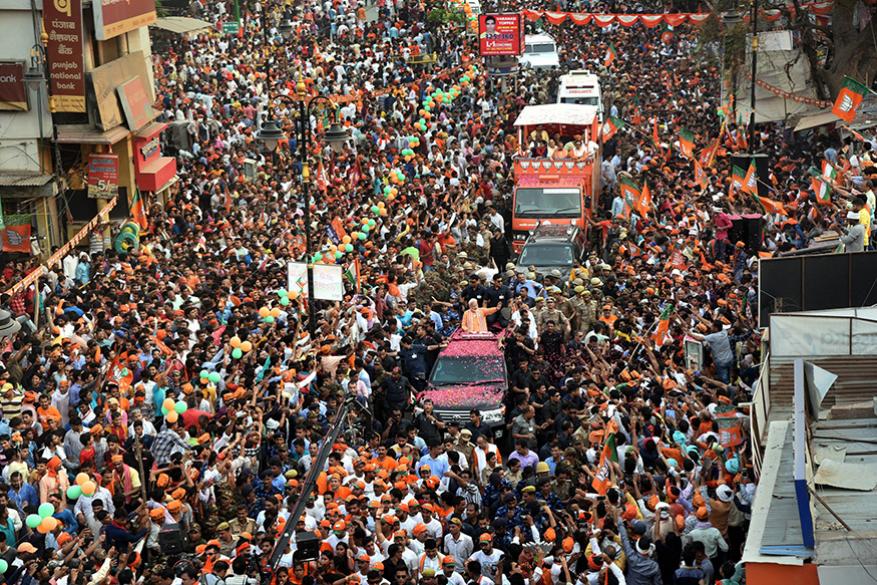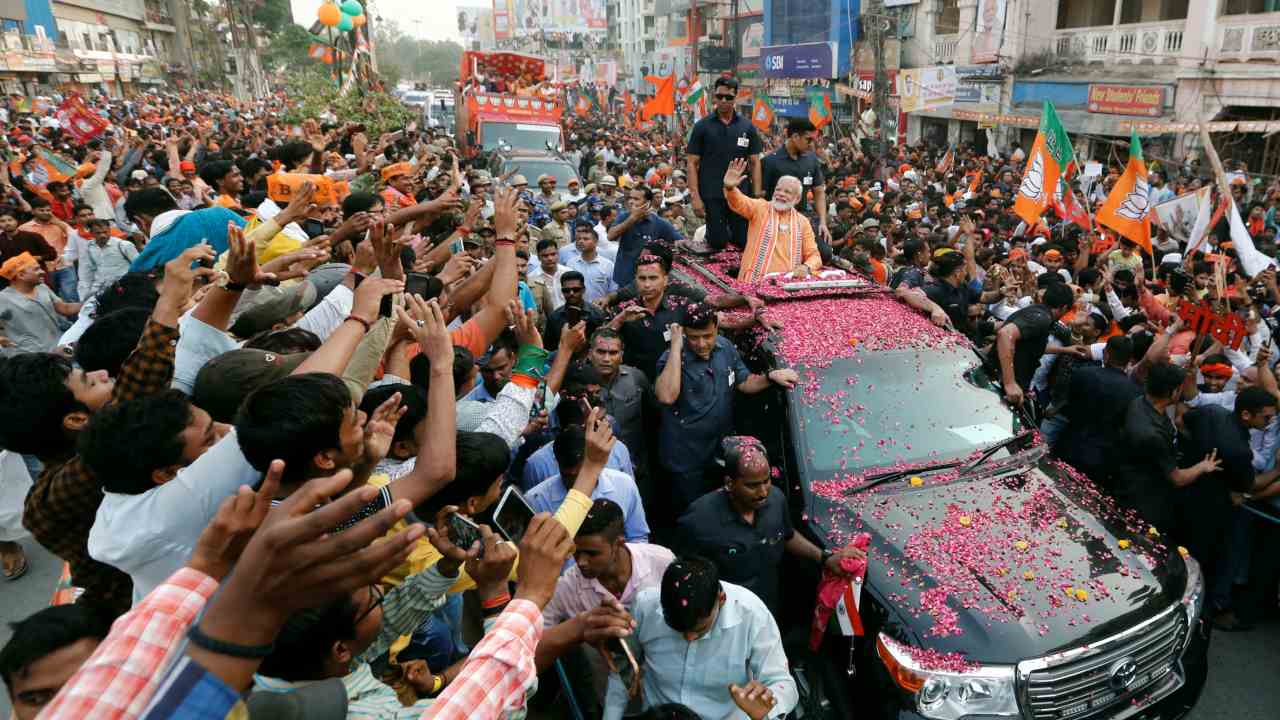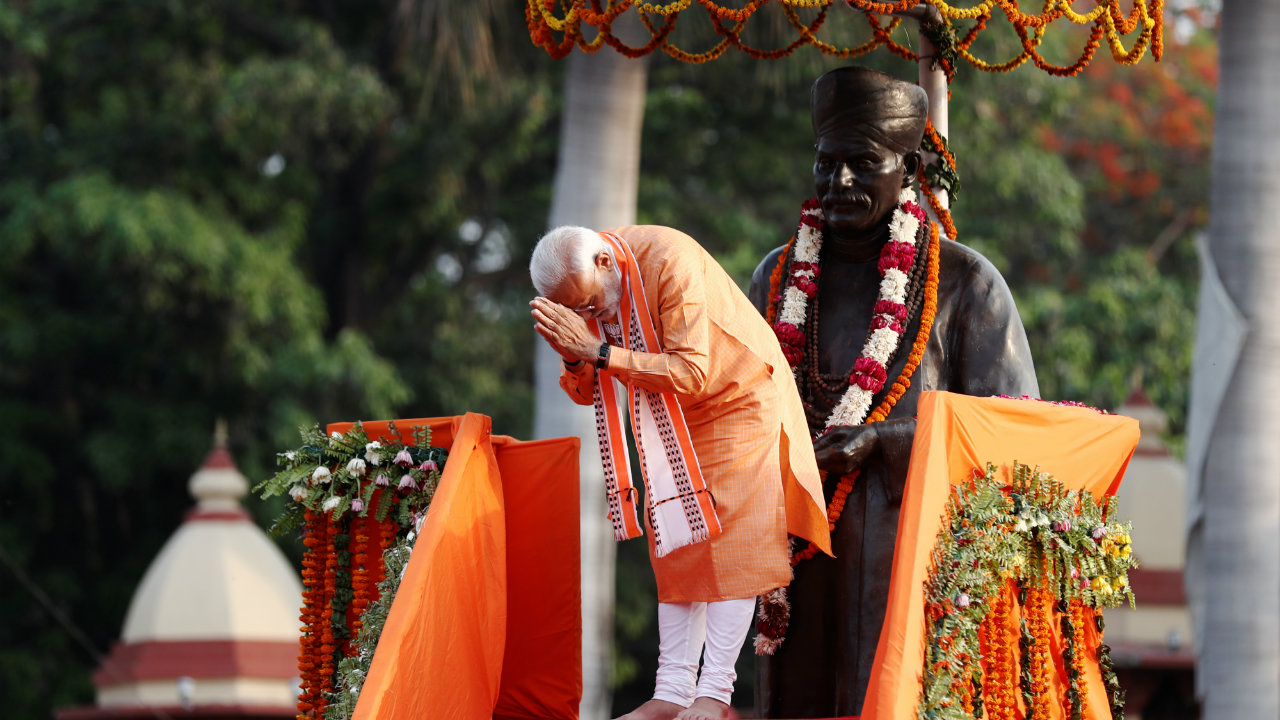India became physically independent in 1947 but that independence was far from real. It continued to be governed by the same British-created elite that had run India for the British. Not only did the way of speaking remained British, but the way of thinking & the mindset also remained obedient to Britain. Actually Britain changed a great deal between 1947 and 2013, but British-trained Indians remained obedient to the Britain of 1947.
We were thrilled when Narendra Modi became India’s Prime Minister in 2014. That massive wave was born out of disgust with the old corrupt Congress regime and out of the hope that Shree Modi would do for India’s economy that he had done for the economy of Gujarat for a decade & half. It was an aspirational vote for better economic days.
Our own hope was that the 2014 election would prove to be the mental independence of India. That has remained elusive.
India has made terrific progress in the last five years but the aspiration for “better days” is still unmet. So there was concern that the current election might prove difficult for Shree Modi & his party. Mr. Modi remains very popular and there is great respect for him, for his hard work &, above all, for his dedication to India’s progress. But would that be enough for disgruntled voters to choose him with a majority of seats in the Parliament?
Our worries are abating somewhat, especially with sight of people crowding for a glimpse of him. It seems that voters may indeed concur that he needs another term to complete what he has begun. And they are showing they understand that he & he alone is working for development of India, all of India.
Look at his reception in Varanasi, his chosen election seat & the oldest continuous city in the World.
There is also deep satisfaction that India is again getting a degree of respect from the world. And it is earned respect, not a gift. A big big part of this comes from the air strike by Indian Air Force against the terrorist camp deep inside NaPakistan. It was a major statement from India and everyone knows that only Narendra Modi had the courage to make it.
It is critical to understand that this is a virtuous circle & not a causal relationship. Narendra Modi has been a politician for 20 years. But, by 2014, the Indian electorate had grown in mental confidence and wanted a strong leader who would fit their aspirations for India. And Narendra Modi was the perfect fit. And he, for his part, has done what for India that the increasingly confident Indian wants. And, as a result, it looks as if the Indian voters might re-elect him.
And this is an all-Indian electorate, not the BrIndian self-proclaimed elite of India. Their choice is Indian traditions, Indian culture & Indian Dharma. And no leader represents these like Narendra Modi. This transformation of the Indian electorate was very well described by Chitra Subramaniam of the Republic channel of India. She wrote in her article titled Bhakti,
- “India is listening to itself – and I think for the first time India likes what India is hearing in so many ways.”
Rarely have we liked a sentence as we liked this one of Ms. Subramaniam. And we, with both humility & with passionate intensity, hope she is right. Because it would be the first major step in getting the mental independence we hope & dream about.
Send your feedback to editor@macroviewpoints.com or @MacroViewpoints on Twitter



You asked me to read this article and I did.
I agree India was ruled for 60 years by Brit educated leaders moulded by the British brand of democratic socialism.
Yes Modi was a refreshing change. With his reputation for integrity, Indianness and administrative acumen and with the massive mandates he got one expected and hoped for radical fundamental ECONOMIC reforms.
Unfortunately there has been not a single fundamental radical reform such as abolition of direct taxes and exchange controls and deregulation of micro small and medium industries that would have de-criminalised black money and “Indian money lying in foreign banks” and catalysed India towards double digit growth which it requires for decades to move up from a Lower Middle Income country.
Instead tinkering with tax rates, exchange rates and industrial regulations has allowed the economy to grow at less than half the required rate while black money generation and illicit financial outflows continue merrily. 140 billionaires and a million millionaires have been created and 100,000 of them have “emigrated” with Indian money. Some of the illicit financial outflows round trip back to India through so-called FDI from tax havens, FII, private equity and IPL.
Meanwhile India continues to languish around the 150 world rank in per capita income and in the bottom half in almost every Human Development metric including healthcare.
Economic “reforms” like demonetisation, GST and farm laws have been impulsive and unorganised botches and have not benefited the economy.
Valuable time and resources have been wasted on politico-religious issues that do not benefit the economy in any way.
As regards the Pak air strike, while it helped win the election, it was a damp squib compared to the decisive victory over Pak in 1971 in the teeth of American opposition and compared to Pokhran 1 and 2.
Thanks for publishing my riposte. I would like to amplify why I said the Balakot air strike was a damp squib though it helped Modi win the election.
1. It was a single strike where we lost an aircraft and one of our pilots was captured. We can spin it any which way but it was a humiliation to lose a pilot and an aircraft and we could not prove that we downed 2 Pak fighters.
2. In 1947 we not only repulsed the Pak attack but drove them out of 2/3 of Kashmir. We managed to airlift and successfully use tanks when conventional wisdom was that tanks could not be used in that terrain. It was a great achievement for a newly Independent nation.
3. In 1965 we again repulsed a Pak attack in Kashmir, made deep thrusts into Lahore and Sialkot and destroyed or captured 200 ultra modern Patton tanks. This achievement was particularly impressive in the context of low national morale after the 1962 loss to China, Nehru’s death, droughts and the anti-Hindi agitation in the South.
4. In 1971 we had a decisive victory over Pak and dismembered that country in the teeth of opposition from America.
5. In 1974 we conducted a nuclear test being the 6th nation to do so in the face of American and international sanctions.
6. In 1998 we conducted both nuclear and thermo nuclear tests and coped with American and international sanctions.
7. In 1999 in the Kargil conflict the terrain was against us but we managed to dislodge the Pak invaders after several days of combat.
Compared to the above what was the importance or achievement of the single Balakot strike where we lost a pilot and an aircraft?
Every case you mention was a battle. The Balakot strike was not a battle. The IAF carefully avoided attacking any NaPak military targets. That strike sent a clear message to heads of NaPak wings that they will pay a price if they mount terrorist attacks. That was totally unprecedented and clearly they got the message.